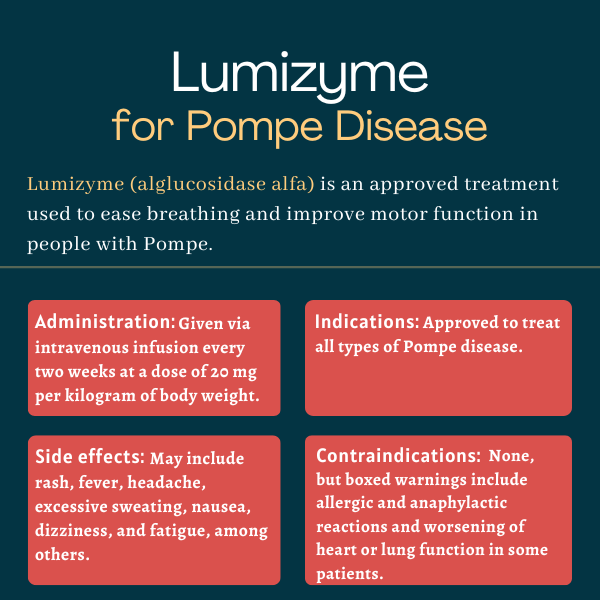
FAQs about Lumizyme
The U.S. Food and Drug Administration first approved Lumizyme in 2010 to treat late-onset Pompe disease in patients ages 8 and older. The agency expanded Lumizyme’s approval to cover patients of all ages in 2014.
Available data have shown no association between Lumizyme use and complications during pregnancy, including major birth defects, miscarriage, or adverse maternal or fetal outcomes. Use of Lumizyme during pregnancy should be tailored according to the needs of the patient, and pregnant patients are encouraged to enroll in a patient registry that is tracking outcomes for pregnant patients and their children.
There is no data showing an interaction between alcohol and Lumizyme. However, as alcohol can interact with many medications, it is always advised that patients ask their clinicians about the use of alcohol while taking this medication.
Some patients in clinical studies have seen improvements as early as three months after treatment initiation. In the clinical trial in late-onset Pompe patients that supported Lumizyme’s initial 2010 approval in the U.S., an increase in the average six-minute walk distance (a measure of motor function) and lung function was evident by 12 weeks after starting therapy. That said, Lumizyme can act on every individual differently, and the timing of its effects will vary from person to person.
Hair loss and weight gain have not been reported as common side effects of Lumizyme. Patients who experience unexpected changes after starting treatment are encouraged to consult their healthcare providers.
 Fact-checked by
Fact-checked by 



